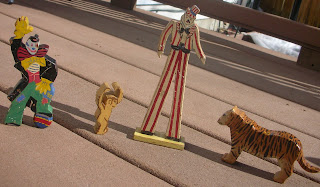Auggie: Miki, I hear you’ve recently finished Fates and Furies by Lauren Groff. This novel was much talked about and critically acclaimed in 2015. Do you feel the novel merits such acclaim?
Miki: I do. I thought the characters were very complex. I loved the two parts: Fates and Furies. The ‘fates’ was basically book one, the happy times, the times when two people believe they were fated to be together happily ever after. The ‘furies’ part looks at the deep, realistic aspects to marriage that is not all sunshine and lemon drops.
Auggie: Who can you recommend this book to?
Miki: Anyone who enjoys strong, literary fiction. I really loved it.
Auggie: Italian author Elena Ferrante had a hit with My Brilliant Friend, the first in a series of Neopolitan books about the friendship between Elena and Lila. You’ve recently finished book three in the series, Those Who Leave and Those Who Stay. What did you think of it, and how does it compare with the other books in the series?
Miki: It’s difficult to compare the books because each book is a continuation on the other. One must think of them as one long story. This is such a passionate set of novels. They’re about love, relationships, and children. The most important relationship in these books, however, is that of friendship. That is, how friendships shape us as we go through life. The friendship in these books is so intense and challenging, and unlike anything I’ve ever read before -- especially how women understand friendships, how friendships change and evolve over time.
Auggie: It sounds as if you really enjoyed the Ferrante book.
Miki: I sure did! I can’t wait until the next one.
Auggie: Another book I’d like to ask you about is Witches: Salem 1692 by Pulitzer Prize winning author Stacey Schiff. In a wave of witchcraft hysteria, 19 men and women are hanged and another is pressed to death. How would you describe the book?
Miki: It’s the history of the Salem witch trials that we only thought we knew about. Schiff’s book digs so deep and brings a human face to the madness of the era. There were so many issues at play here, be it religious oppression, social and sexual oppression, threats of Native American attacks, and stretches of outright boredom. At the peak of the hysteria there was so much superstition, so much fear of the unknown. What was most fascinating to me was how Schiff tied this witch hunt to other more recent witch hunts including the Rosenberg case and the Hollywood red scare of the 1950’s.
Auggie: Do you think something like this could ever happen again?
Miki: Absolutely. We’ll see what the next election brings. She may have to write a sequel.
Auggie: Speaking of witches, we hear you’re currently reading The Witch of Lime Street by David Jaher. How’s that one coming?
Miki: It’s so good.
Auggie: Can you give away anything?
Miki: It’s a true story about the friendship between Sir Arthur Doyle, the creator of Sherlock Holmes, and Harry Houdini, perhaps the most famous magician of all. Doyle is a spiritualist who believes in mediums who speaks to the dead, and Houdini, a fierce skeptic who does everything in his power to debunk the spiritualist movement. But can he?
Auggie: Miki, we know you as a big fan of J.K. Rowling. It’s no secret that she also writes under the name of Robert Galbraith. We hear you’re reading the Cormoran series, which currently consists of three titles: Cuckoo’s Calling, Silkworm, and Career of Evil. You recently finished Career of Evil. What did you think of it?
Miki: This has to be one of the creepiest books I’ve read in quite some time. So of course I highly recommend it. I listened to this one on audio, and I wanted to mention that it’s read by Robert Glenister. He reads all the audio in the Galbraith series and he does such a fantastic job. When he reads the part of the serial killer it sent chills up my spine. He’s an incredible reader.
Auggie: The literary community knows that you’re a big fan of Patti Smith’s Just Kids. Isn’t it interesting that she wrote the Blue Oyster Cult song that gave Career of Evil it’s name?
Miki: I never put that together until I heard about it, but the more I read, the more I can see how Patti has been so influential in so many ways.
Auggie: If you read the first book in a series, do you feel compelled to read them all?
Miki: I would like to say no, but I can’t think of an instance where I hadn’t.
Auggie: Miki, do you still mourn for Dobby?
Miki: I do still mourn for Dobby. I love him.
Auggie: You’ve also recently finished Why Not Me? by Mindy Kaling, star of tv’s The Mindy Project. What did you think of her book?
Miki: Mindy cracks me up. I would read anything she wrote. I love her show. She basically writes what I’m thinking. I also did this one as an audio book. Mindy reads it herself, and there’s such a special connection between the reader and the listener.
Auggie: And did you also read her first book, Is Everybody Hanging Out Without Me? What’d you think of it?
Miki: I liked it even better. There were times when I would be just laughing out loud. I love that she’s not afraid to be the butt of a joke -- something I’ve gotten used to as well.
Auggie: Finally, Harper Lee’s Go Set a Watchman. Did you like the book and do you think she actually wrote it?
Miki: I do think she wrote it, because I actually thought it was just as good as To Kill a Mockingbird. I think if people would relate Atticus to the turbulence of the times, they’d see him as less heroic but perhaps more human.
Auggie: What do you think you’ll be reading next, Miki?
Miki: Black Rabbit Hall by Eve Chase.
Auggie: Thank you, Miki. We look forward to hearing your thoughts on this one.
Thursday, February 25, 2016
Monday, February 22, 2016
Pete rates Bob Dylan's 'Chronicles Volume One' 4 out of 5 aliens
A Review of Bob Dylan’s Chronicles Volume One
I remember long ago when a local politician came to our high school to make a speech. He said something about how our brains are small now, but like a sponge they’ll soak up knowledge and grow large and smart. Of course, a 17 year old kid doesn’t want to hear how small his brain is, but his words were so true and a good bit of wisdom for young people.
Bob Dylan has such a sponge-like brain. After reading his Chronicles Volume One, it was interesting to me how much knowledge he’d acquired even as a young man named Robert Zimmerman, before transforming into the famous Bob Dylan. Although he was laser-focused on folk music, he had a deep understanding and appreciation for seemingly every form of music and its historical significance. He was also well read. Again, with a vast curiosity of subjects from literature (except, like me, he didn’t get James Joyce) to poetry, to antiquity, to current events and not so current events. Dylan spent a great deal of time at the New York City Public Library reading newspapers from the Civil War era. He wrote that he preferred old news to the news of the day.
My wife bought me this book when visiting City Lights Bookstore in San Francisco. Dylan had been there too, back around 1965. Some of his early influences had been the Beat writers and poets who frequented City Lights. I confess it took me some time to get around to reading Chronicles Volume One. I’m such a fan of Dylan’s music, I didn’t want to be disappointed if I didn’t get his writing or learned something I didn’t want to about him personally. I realize this is a silly notion (albeit human), as one is supposed to separate the art from the artist. But those are books for you. Sometimes you just bide your time before reading them for any number of reasons.
I do want to mention a prior book I reviewed for this blog because it pertains so well to Dylan. That book is Malcolm Gladwell’s Outliers. Gladwell writes about the 10,000 hour rule, whereas when one devotes 10,000 hours to their craft or profession, they have a good chance to develop a high level of proficiency or even genius. Dylan certainly has surpassed 10,000 hours in his long career, but even as a young man he put in tons of practice time and played every show he could get. His family reluctantly let him follow his bliss and he had great timing. I mean, how often does folk music become hot?
If you liked Patti Smith’s Just Kids, I would suggest you also read Chronicles Volume One. They’re both well-written tales of true artists making their way through interesting times. I would rate Chronicles Volume One by Bob Dylan a solid four out of five aliens. The only part I didn’t like was a segment where Dylan goes to New Orleans to recapture a certain sound he wanted. He tries to find it, sort of finds it, loses it, picks it up again, and on and on…A musician would better appreciate that part. But for someone who doesn’t know how to play an instrument, can’t sing or dance (except for a certain move I do for the ladies past midnight), I sure got a lot out of this wonderful book. 
I remember long ago when a local politician came to our high school to make a speech. He said something about how our brains are small now, but like a sponge they’ll soak up knowledge and grow large and smart. Of course, a 17 year old kid doesn’t want to hear how small his brain is, but his words were so true and a good bit of wisdom for young people.
Bob Dylan has such a sponge-like brain. After reading his Chronicles Volume One, it was interesting to me how much knowledge he’d acquired even as a young man named Robert Zimmerman, before transforming into the famous Bob Dylan. Although he was laser-focused on folk music, he had a deep understanding and appreciation for seemingly every form of music and its historical significance. He was also well read. Again, with a vast curiosity of subjects from literature (except, like me, he didn’t get James Joyce) to poetry, to antiquity, to current events and not so current events. Dylan spent a great deal of time at the New York City Public Library reading newspapers from the Civil War era. He wrote that he preferred old news to the news of the day.
My wife bought me this book when visiting City Lights Bookstore in San Francisco. Dylan had been there too, back around 1965. Some of his early influences had been the Beat writers and poets who frequented City Lights. I confess it took me some time to get around to reading Chronicles Volume One. I’m such a fan of Dylan’s music, I didn’t want to be disappointed if I didn’t get his writing or learned something I didn’t want to about him personally. I realize this is a silly notion (albeit human), as one is supposed to separate the art from the artist. But those are books for you. Sometimes you just bide your time before reading them for any number of reasons.
I do want to mention a prior book I reviewed for this blog because it pertains so well to Dylan. That book is Malcolm Gladwell’s Outliers. Gladwell writes about the 10,000 hour rule, whereas when one devotes 10,000 hours to their craft or profession, they have a good chance to develop a high level of proficiency or even genius. Dylan certainly has surpassed 10,000 hours in his long career, but even as a young man he put in tons of practice time and played every show he could get. His family reluctantly let him follow his bliss and he had great timing. I mean, how often does folk music become hot?
If you liked Patti Smith’s Just Kids, I would suggest you also read Chronicles Volume One. They’re both well-written tales of true artists making their way through interesting times. I would rate Chronicles Volume One by Bob Dylan a solid four out of five aliens. The only part I didn’t like was a segment where Dylan goes to New Orleans to recapture a certain sound he wanted. He tries to find it, sort of finds it, loses it, picks it up again, and on and on…A musician would better appreciate that part. But for someone who doesn’t know how to play an instrument, can’t sing or dance (except for a certain move I do for the ladies past midnight), I sure got a lot out of this wonderful book. 
Saturday, February 13, 2016
Wednesday, February 3, 2016
Subscribe to:
Comments (Atom)































